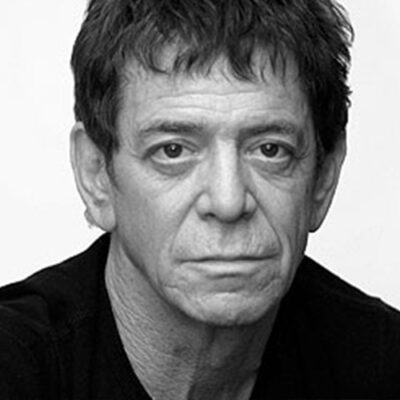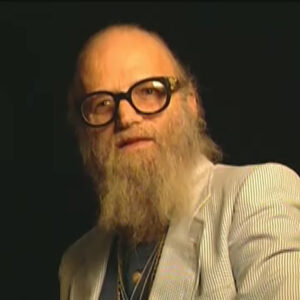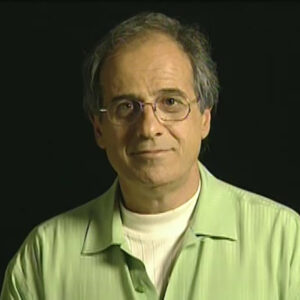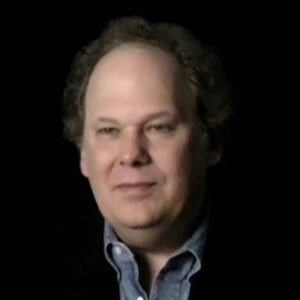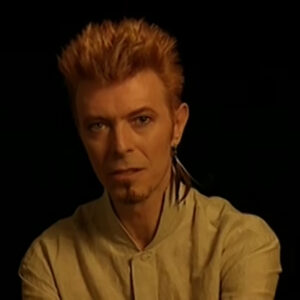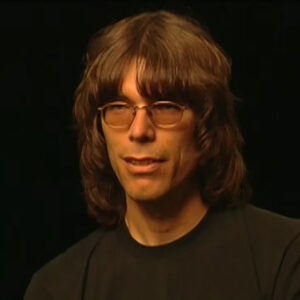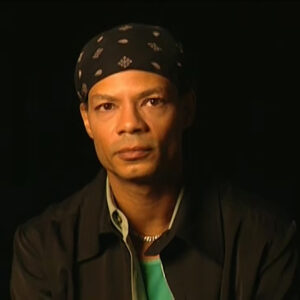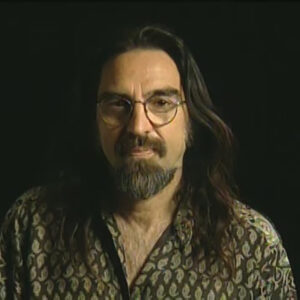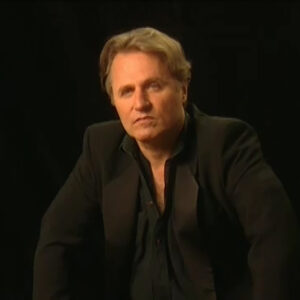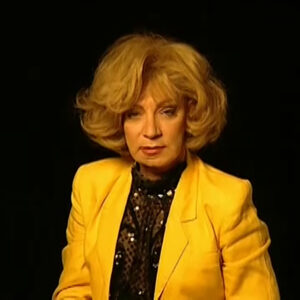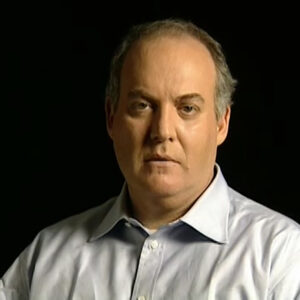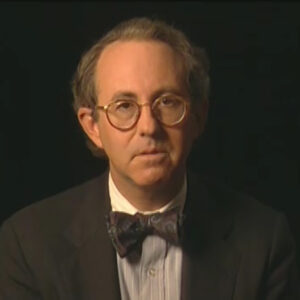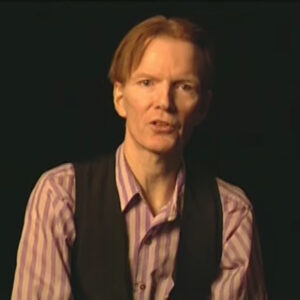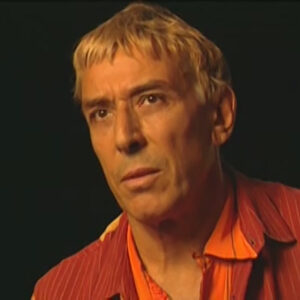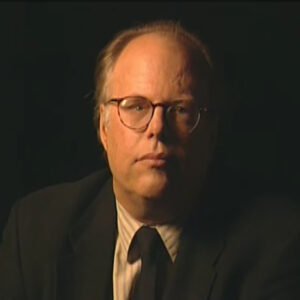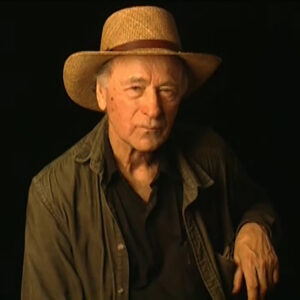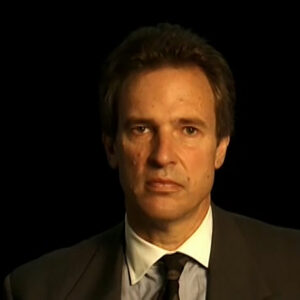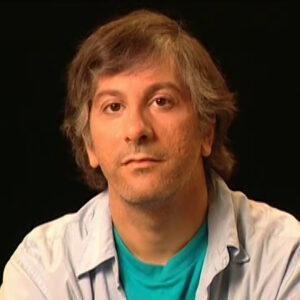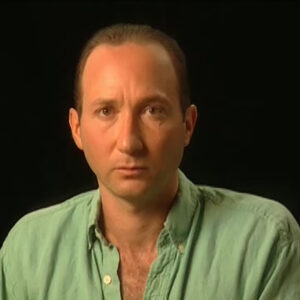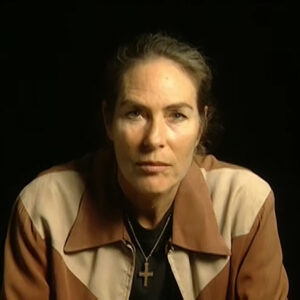Speaker Well, my brother and Stirling were friends. They had been friends since I was about 10. So obviously I knew Stirling and Stirling met Lou when he went up to visit my brother at Syracuse and Stirling and John and Lou had been playing for about a year. I think I’m not really sure. And they had gotten a job to play in a high school in New Jersey. And their current drummer didn’t like the idea. I think that he objected to being paid to play playing for money. So he quit. And in a panic. They needed a drummer fast. And Stirling knew that I was banging away on drums in my room. So he suggested me.
Speaker And you tell me what your lifestyle was like at that point.
Speaker Same a disease. Now, I was just I had wanted to have a bass drum and a tom and a snare really is all I had. And I was just playing along to one Rolling Stones and Bo Diddley and stuff. And it was the same as the same as it is now primitive.
Speaker You just start that over by saying, my drumming style was working, my drumming style was as it is now.
Speaker Which was very primitive. And at that point, I really wasn’t trying to sound African. I was just playing along two records I enjoyed. Oh, Bo Diddley and the Stones and African music.
Speaker So you played the jersey. And then a few days later, it was bizarre. Immediately they got me out using those words again.
Speaker Well, I believe at the summit New Jersey show, somebody asked us to play at the Cafe Bazaar in the village. And you weren’t allowed to have drums there because it made too much noise. But they asked me to come along and play tambourine. But at this point, I was still a temporary unit.
Speaker And then can you talk about that moment? You have the bazaar where the. And it goes, I think Rubin. Yes. Let me use those names and tell us. Set the scene for us. What happened?
Speaker Well, we had been playing at the bazaar, I believe, like two or three nights, and a mutual friend of Llewyn and John’s and Andy’s brought Andy in to see us because that person knew he was looking for a band because he had an idea for a multimedia type show and she brought him there to see us and he liked it. There you have it.
Speaker And I think we told me recently that you played maybe a night or two more and then you were fired. You quit, were fired because you were you were told not to play a certain size. I mean, it was a coffeehouse.
Speaker And I don’t know what kind of music they expected from us, but after four or five nights, maybe we played. I don’t know what song it was, but it could have been any one of them, obviously. And the owners told us that if you play one more song like that, you’re fired. So we did. And I was glad because it was Christmas. And I did want to be playing at the Cafe Bazaar on Christmas Day or was the coffeehouse.
Speaker So we know the whole little story.
Speaker Yes. Is that what you mean? Are OK. What was I talking about?
Speaker Did you play the Cyber Cafe?
Speaker Bazaar was a coffee house in the village. And we were supposed to play for two weeks and we played. I don’t know what song we played, but it was about the fourth night. And the owner told us that if we played another song like that, we’d be fired. And we did.
Speaker And we were after that.
Speaker And I think Warhol sets you up at the factory. Right. What do you mean by playing? I maybe tell us about the next step.
Maureen Tucker: Well, we didn’t play at the factory. It was a place to rehearse. We really didn’t have any place to rehearse. So that space, of course, was available. And I guess we just dragged our stuff over there, which wasn’t much. And we didn’t often rehearse there. I worked. I was still working, but I believe the guys would go up there. I’m trying to think of it.
Speaker Sorry. Trying to think if I was ever we just we would rehearse sporadically, to say the least. I’m sure they rehearsed more than alone than with me. I was working so I didn’t live in the city, but I used to come in on the weekends.
Speaker Can you tell me about being.
Speaker I said, the first woman brother. I thought about what that was like. Was there any animosity within the band or for me wonder just kind of accepted. What was it like?
Speaker It was something I took no notice of.
Speaker Start out by saying, you know, what was wrong with being a woman drummer was something I took no notice of. And as far as I remember, really nobody else did either. It’s only recently that I get that question a lot.
Speaker People look back at that. I mean, it is kind of amazing when you see all these guys everywhere and every band.
Speaker Yeah, I guess it is. But it just never occurred to me that there’s just something I shouldn’t or couldn’t do. Actually, when you think about it, it was brave. Isn’t the word I was going to say kind of brave of them to have a female drummer. I don’t know what the word is, but. It was so different at the time, as you said. However, as I said, this was not something that was brought up really by anybody, the press or other musicians or anything.
Speaker And I’d love you to talk a little bit about the flooding first to get out of the water before we get out of that area. Tell us what that what that is. What’s that like? What were those days like? What was it like being on stage with all this other stuff like that? Set the scene for us.
Speaker Well, the exploding plastic inevitable was I used to often wish I could be in the audience to see this because it was so different at the time. And it must have really been something to come upon. And most people literally came upon it. Nobody knew who we were. So this was not something I expected.
Speaker It was just interesting as kind of a wimpy word out, know what other word to use. But it really was intense. Maybe that’s a good word.
Speaker And as I said, there were so many times I would be beating the hell out of the drums and wish I could see what this was like from the audience and describe what else was going on there was there.
Speaker But there was also dancers and light show and talk about the play.
Speaker The entire show consisted of the band playing and behind us. And it would show movies or slides or whatever, and a light show would be going on at all times. And we had two dancers and all this would go on all together and coordinated, not choreographed by any means, but done with some thought on the spot. Not not pre thinking it, but not planning it ahead, in other words, but also not just turning on a light on and on and off. And that’s the end of it. There was thought to it.
Speaker Tell me what songs you guys were playing that.
Speaker We did a lot of improvising. I’m trying to think what very long groove. Let us start again. We did a lot of improvising and not really long versions of the songs that I recall anyway. But we were doing heroin at that time. And Venus. Waiting for my man. And I really don’t remember what else. But really, we did do a lot of improvising like Angel’s death. So I don’t I’m not sure if that was that early.
Speaker Can you talk a little bit about that and how that was about drugs also? What was it?
Speaker Well, my one reason I always loved Lou’s guitar playing in. Scuse me. Sorry. One reason I always loved Lou’s guitar playing was his use of feedback. It wasn’t just noise. He knew what he was doing and it was. It fit the song, and I always felt that my role was while he was making this noise, which basically had no rhythm really. It was my job to keep a rhythm going. Or else it would be just noise.
Speaker Tell me about that rhythm. Well, you were standing up in a very conventional drumming style. Tell me a little bit about that.
Speaker When I first played with them, I used to stand because I was trying to get an African type of sound or deeper sounds. I didn’t I didn’t have or want any cymbals. And I would use the bass drum as one another drum and would probably use a symbol as I wasn’t.
Speaker I wasn’t consciously trying to be different, I was trying to play to the music, the style and the mood of the song.
Speaker I. Let’s say this like heroin you’re driving is so vital to that song.
Speaker You talk about a little bit how how you kind of go up and down.
Speaker Actually, that’s a funny story, because during the Velva tour, this recent one in 1993, one night, Lou said somebody said something about to me about how do you know when to stop? And Lou was there. And he said, yeah, I always wondered that, how do you know that? And I said, No, you say, I guess I just don’t know. I guess I just don’t know. Oh, I always had. But anyway, I always loved playing how one I loved that song.
Speaker And there were there were some times when we played that when I would get chills. One thing we always did was we paid a lot of attention to each other was a lot of looking at each other to see who was doing what and what they might be thinking about trying next. And I think that was a big part of our sound. When you get down to it. I’ve played with a few bands lately, and that’s something that I noticed only recently, that everybody’s kind of stuck in there doing their thing and really not not really, really listening to the other people or watching. And we were always I was always watching Lou to see what what he might do next. And Sterling and I kept close visual contact because we were there, the rhythm unit. And I don’t remember what you asked me. I’m sorry.
Speaker You answered it as I also think of you as someone who could cut everyone in control as I you were really there. They’d go off kind of wild sometimes and you had to bring them back to the way that you talked about.
Speaker We did a lot of improvising, as I said before. And one of the problems was that Lou and or John would very often go off into Never Neverland. And it was up to me and Sterling to, I guess, to keep something going that was steady so that it was not just noise anymore. It was still a song with the rhythm. And so that was something to come back to.
Speaker I’d love you to talk about.
Speaker After the EPA ended, you guys then went on to before it really wants to start playing museums within the sort of play clubs that we’ve talked about on the road.
Speaker And that’s some of that after the API where we started and during. Also, we we played clubs and we didn’t tour like they do now. I don’t think anybody did really. But we would just go, like, to Boston and play and then go home the next day. We didn’t hang around and we didn’t do tours, as they say we did once we went for a month and in a bus with 13 people. And it was kind of lunacy. It was fun. But every just about every city in those days, it seems they had places like the damn big empty previously used as dance halls, I suppose. And that was a lot of the types of a lot of the cities. That was the types of places we would play. Maybe they had a thousand people or something.
Speaker And as I recall, most of them didn’t serve beer or liquor. So pretty. It was always all ages, which is nice. And we played a few clubs, but mostly I recall these big empty rooms and with a pretty well people.
Speaker What was it like? Terms of the audience.
Speaker Yeah, we did well with audience. We always we built up a good audience and I don’t recall ever playing to, you know, to a disappointing crowd. We have played places where we were held over, for instance. Boston was always great for us. Philadelphia was good. And try to think where else. But we we played so rarely that we went to Boston often because it was close and because we’d like them and they liked us. We played in Chicago a few times, but not a lot. And I don’t know if we ever played in Washington, even playing Baltimore once.
Speaker You didn’t play New York for a while now. What was the story?
Speaker Well, my guess about that is there wasn’t many places to play.
Speaker And we are going to say New York. So we know what talking about.
Speaker We didn’t often play in New York. In fact, the only time I recall playing was the psychiatrist convention.
Speaker And we played it to a gymnasium, a place called the gymnasium once the bazaar, of course, and the Don. But I don’t recall ever playing anywhere else. We played at Lincoln Center once for something, but I’m not really sure why we didn’t play.
Speaker We didn’t want to, but I don’t remember why we didn’t want to. And Andy’s involved.
Speaker It was pretty minimal, really.
Speaker I mean, just using it as.
Speaker When you think about this and his involvement with the group was, in my opinion or not, my opinion, but my memory was really as a mentor, maybe as is the word, he, of course, had nothing to do with producing the first album. But he was I believe he was very big influence on Lowe. I’m sure he influenced me. I’m not sure how, but he must have. And that whole scene I know influenced me. But I believe his. His work ethic was very high.
Speaker And I’m sure Luis was also at the time, but was made even more so by having known lo.
Speaker Scuse me, having known Andy this year, I should switch chairs.
Speaker Is there a way to there? I didn’t. Tony. Just take the freedom.
Speaker So I to say. I am so, so sorry. Good. Thanks. That’s right. You.
Speaker Let’s see if it’s worth.
Speaker Whenever you’re ready, I’ll talk to you next about sort of how you see the songwriting process and also kind of like when you when you were. Record where all these songs, your personal bands, or was it sort of very improvisational?
Speaker You talked about that a little bit and you start with sort of the songwriting process.
Speaker Eddie.
Speaker I really don’t know what Lou’s songwriting process is. I’m sure, like everybody else, he has lyrics first sometimes and music first. Other times I’m I’m really not sure. And I forget what the second part is. I’m sorry.
Speaker When you were recording the album. These were songs you guys played a lot already. Or tell me about that process.
Speaker When we recorded the first album, of course, we didn’t. We had eight hours, so we didn’t have time to fool around. We had all those songs arranged, how we wanted them and stuff. The second album, I think one of one of the next two, we did have time and a little money to rehearse a little bit. We know half a day or something, but mostly the songs had been played live before and.
Speaker Well, when John left that which is the right, like he write. How did things change? Any thoughts on that at all?
Speaker John’s leaving. The band, of course, had a huge effect musically and emotionally. I’m sure was a wacky, musically so wacky. I think the difference was profound. I think he was still a good band. And Doug had his own things to bring to the band. But no one could replace Cale.
Speaker And if you compare the third album to, say, the second album, it’s the third out. It seems like a lot of the love songs that it or not.
Speaker You know what? I’m going to let’s talk about that is the contrast to the third album was a lot mellower than the previous two.
Speaker And I don’t know that I’m sure it had something to do with John sleeping or not being there, but also it had to do with what Lou was going through or thinking about at the time because he wrote old songs.
Speaker Okay.
Speaker So you saying after hours of the third hour. I think it’s the third. Yeah. Yeah. What was that like? Scary.
Speaker Well, Lou had written after hours for me to sing, and I was very, very nervous in the studio trying to do it. And after about a take side, everybody, I made everybody leave because I knew I’d just never do it because they were all in the booth laughing at me. So I made them leave and sang at me.
Speaker And the engineer, huh? Oh, God, no.
Speaker Can you tell us more about the way the sound of that gobbets evolved over the years?
Speaker Yeah, just when you think of this four hour talk about that, maybe I have to think about that, which sounds crazy, but.
Speaker I really don’t know how I would how I would answer that, maybe because it was just a natural thing and I was in it and I was in amongst the evolving course and evolving that was done was not conscious. It was mostly mostly, I believe, had to do with low being the songwriter, because that, of course, sets the mood for for every song and every album. Certainly.
Speaker So with you, you finish who you play places and then maybe both write the next hour and you would sort of bringing these songs into the group and you write writing.
Speaker How did the work that you record them?
Speaker When Lou had written a new song he would bring it to, we really never rehearsed. Our rehearsals were soundchecks and onstage. And if he had a new song, he would introduce it or whatever, and the guys would learn the chord structure, of course. And really songs were worked out pretty much on stage.
Speaker Not something like murder mystery, of course, but most songs loaded with the last album with the think you appropriate. Yes. Tell us about that.
Speaker That was loaded, was recorded in April, I believe I’m 70 and I was pregnant and too fat to reach the drums so I couldn’t play.
Speaker But you did play at the end in August at Max’s. Did you play? No, I didn’t.
Speaker Now I went to see them, but I didn’t play.
Speaker And tell me a little bit about some collaborations with you over the years.
Speaker I know that you played on New York over the past six or eight years, nine years.
Speaker I’ve done a few things with Lo, not a lot. I’ve played on a few songs on his out. One of his albums. And he has played on a few of my albums to be nice. He’s a good boy. And of course we did the reunion tour and.
Speaker Can’t think of anything else. You did or. Excuse me.
Speaker I was sitting in the pale blue eyes. I forgot that stirred up again.
Speaker I just felt Lou and John work, were performing songs for Drella.
Speaker And Lou had asked me if I had invited me to come up to that from Georgia to the show. And before the show, they proposed that I. I sang he and Cale proposed that I sing Pale Blue Eyes with them.
Speaker Were you nervous?
Speaker Yes and no. That’s hard to to explain. I’m I get nervous about something like that, but I just put it out of my mind. So I was nervous but not nervous.
Speaker If that means anything, I’m nervous at all. Oh yeah. That was fun. That was a lot of fun.
Speaker What did you think that capture that you were excited because we know songs for Drella was.
Speaker I had seen it twice. I believe in Brooklyn.
Speaker And then I don’t remember where the other was. But I had seen it twice and I liked it a lot.
Speaker There were no songs that that even though there were personal songs to Low End or John who had written them, they meant a lot to me. Some of them. And I really enjoyed it. Not that I really enjoyed seeing alone John together.
Speaker Do you think it captures in any way you remember some of the songs?
Speaker Yes. My memory and my feelings about Andere are very different than Loeser or John’s or Stirling’s, I’m sure. We had a different relationship. Andy and I. So, for instance, the work ethic I spoke about, I wasn’t.
Speaker When you think about the work ethic that I spoke about before was really directed more towards low, I think, than than the rest of us. So, for instance, that kind of influence on memory. I don’t have a Vandi. I have my memories are chasing around trying to get five dollars for gas.
Speaker Did you get it?
Speaker Yes. After a long chase.
Speaker I’d love to talk about Sterling. We don’t have to talk to you about it. What was he like for Sterling?
Speaker As I said before, Sterling, I had known him since I was 10. And of course, the loss of him is as been a tremendous blow is not a good word. But the emotional upheaval, it was pointed out by my brother that Sterling really was the first of our peers to have died, which that was something I hadn’t thought of. But also, Sterling was very, very special to me and very special. And I loved him dearly. His position in the band, I believe, was very under underrated and had been all these years till the Velvet tour in 1993. Sterling played with my band. He joined my band in 1992. And I’m very, very glad he did because he finally had the opportunity to play in public in a in an arena. Now, what’s the word? That’s not a good stigma. By playing with my band, Sterling had the opportunity to play in places which were conducive to talking to the fans that the kids would come to see us. And finally, he heard people say how much they liked his playing and and appreciated his playing in the Velvets. That’s something he really had not heard before.
Speaker And he was also to become a philosophy renaissance man.
Speaker You say that you understand where you were that Sterling spent the last 20 years or or more, maybe 25 years of his life in Texas, where he went to the University of Texas and got his P.H. day and at the same time was also getting his tugboat captain license.
Speaker And when he died, that was his his job, his source of income was was being a tugboat captain in the in the Gulf.
Speaker Tell me about the excitement or the complications, everything about and how you came about maybe and.
Speaker Let’s start with how it came about in 1990 to Polygram had said they wanted to release that box set, you know, big a big project. And for once, we decided we should have a hand in something and pick the pictures, for instance, and pick what was going to be on it and things like that. So we actually had a meeting, which we’d never done before in December of 92. And to talk about this and and are we to bring to the table things we thought might might help pictures, et cetera?
Speaker Well, you know, this meeting was attended by all of us. Lou didn’t go.
Speaker So we had this meeting and then we went out to lunch and Lo came to meet us and we were just talking and fooling around. And Lou said as a joke that we should get together and play Madison Square Garden. So we all laughed. Ha ha. But I guess the idea kind of was interesting to everybody. And we were all on good terms at that point. So in February of next year, which is a couple of months later, we came to New York, too, and rented a studio just to rehearse and see what we thought. Not really rehearse, just to play and see what we thought, that if it would still work.
Speaker And tell me where you get out of that. So what was that like going into a studio again to play with everyone?
Speaker Tell me about that moment while walking in there and seeing them was nice. I mean, I had seen them, of course, but I mean, together as a band, the first thing we tried was waiting for my man. And after four measures, we all know that it was still going to work. We had a really good time.
Speaker And then out of that, you decided to do a tour or. The next step?
Speaker Well, we had had the studio for a couple of days to fool around and play and stuff. And we all enjoyed it and liked it and thought it would work. And then we kind of skidded off to our little houses and for everybody to think about it, if we should do this, if we wanted to, and how long we’d want to commit things like that. And finally, in April, everybody agreed we would do something is ninety three.
Speaker Where was the studio? In New York. But I don’t remember where.
Speaker As an April you will. Is that when you went to Europe? Was that the A.. Now, that was 1990. All right. Let’s back up a second. Tell me about the car. That was because there was any world show.
Speaker Yeah. So tell me about that.
Speaker In 1990, the cardie, I found a foundation in Paris. I was having a Warhol exhibit, a big one. And they invited various people from the factory days, including the Velvets, to come in and celebrate with them kind of after much negotiation. We all went, the four of us one and John and Lou had been asked and agreed to play some sort some of the songs for Drella at an outdoor stage I had set up.
Speaker And we we had a great time. We were really having a good time. And just before they went onstage, John ran by me and said, Ma, we’re looking for mallets. For what? He said, I’m gonna play heroin. I said, OK. So then someone ran off to find Sterling and John and Lou did their set. And then we we all played heroin together. And that was really quite something. When when we got off the stage, my daughter was backstage crying.
Speaker Incredible.
Speaker And so then three more years for you all to think about getting together again and doing that to her. Yes.
Speaker Yes. It took three years. And partly because I believe anyway, because Sterling and Lou had not spoken for years.
Speaker And the Khady, a weekend was their reconciliation. And I think they both I know they both were very happy about that. That was just silly, almost teenage animosity that just built up for years and years. And the minute that. Sorry, each other. They shook hands and that was the end of it, which was nice, but also it was aggravating because they could have done that 10 years ago. But now I forget what you say.
Speaker So, yes, it did. It took three years to get back to the stage where you were going to play. So we’re now in April and then you go out to Europe to do a tour. What happened?
Speaker The. I’m sorry. Sorry. I thought you meant. Yes. We we we had decided in April we would do something. And then we rehearsed for three, about three weeks in May and this tour started on June 1st.
Speaker And what was that like? Give me a typical concert.
Speaker What was the audience? It was a very young audience. Was it all. I felt it for next year.
Speaker Well, the audience composition. I have an interesting story about that. When we were rehearsing, we were talking about that, you know, what the audience would be like. And Sterling, Lou and John all assumed it would be 50 year olds. And they also assumed half the people would be there because they hoped we’d bomb. And I forget what that what their theory was about the other half. But me being more optimistic. I made a bet with them and I said, now, now the audience is gonna be like 20, the average age, and no one’s gonna be there to see us born. That’s ridiculous. So we made a bet, which I never collected, by the way. And the first few nights we had the door person. Keep an eye open and just try and see what he thought the average age probably was. And I was right.
Speaker I wasn’t surprised because I had been playing with my band for about four years at that point and playing smaller places, more intimate places than John and Lou do.
Speaker I can see the audience and I know who’s out there. The age friends’, you know. So is what I mean. And so I knew who would be there. I know it wouldn’t be 50 year olds. So actually, the deck was loaded when I made the bet. So maybe I shouldn’t have collected.
Speaker So I think it was just me.
Speaker And they played for a month. Was it ever a along toward the tour?
Speaker Yeah, that tour was. Well, actually, we started on June 1st, was the first show on. We were home on July 11th, so five weeks or so.
Speaker We wish they’d had gone on longer.
Speaker I wish we had remained friends. That’s what that’s my disappointment. It would have been very nice to have done other things. But my main concern was remaining friends. And because we really had a good time. We had a great time just being together. And that makes me sad that low and are on the outs again.
Speaker I hope so.
Speaker We stopped for a second and look at my love.
Speaker We were so good at this. I think one of our best. Oh, great. So I’ve said it.
Speaker All right. Go and the.
Speaker Theba.
Speaker Well, from your point of view, I’d like to talk about songwriting a little bit. And I know people tend to think it’s very autobiographical.
Speaker On the other hand, I sort of think that loose sort of I’ll be your mirrors really set at odds with Lewis, sort of a mirror to everybody else.
Speaker You talk about that and use the word of your passport.
Speaker I remember when Lou was finished without the Ameera. He he was staying at the time. He was living on Grand Street with Sterling and a few other guys, and he came running out of his room to show it to Sterling and I. I hesitate to try and critique someone else’s meaning in someone else’s songs. It could mean anything. I don’t know.
Speaker But that’s so particular. That was such a so that resonates with so many people.
Speaker What was it like playing? That’s sort of what you are. What was the reaction to that?
Speaker I can’t say I remember that in particular. I know I can say I love that song. I think it’s beautiful. And I don’t think anyone could have done it better than Nico.
Speaker So tell me about Nico. What was her position in the band? Where was she? I read something sort of forced in.
Speaker And, you know, I don’t think anyone could have forced Nico. Nico really was never a member of the band, and she didn’t consider herself one. I’m sure this was something to do for fun and because it worked. And why not? I think the songs that she did, the four or five songs she did, she did just absolutely wonderfully. And nobody else could do them like that.
Speaker What was she like?
Speaker Well, let me think. Excuse me.
Speaker Nico and I didn’t have much in common. There was no animosity between us.
Speaker But we just had nothing in common. I was from all over town and completely untravelled or naive. And Nico was this stunningly gorgeous, worldly person. And as I said, we there was no animosity. We simply had nothing to say to each other. However, when I went to see Nico Icon, I was stunned to hear John say the same thing.
Speaker Not that they had nothing in common, but that they didn’t talk, that Nico did not talk really to anybody.
Speaker And that that was a big revelation to me because I thought that her and I really never talked because we just had nothing to say.
Speaker That was probably a relationship. A lot of people.
Speaker Apparently so. And that that really surprised me.
Speaker People think that factory was this cause world of drugs, sex, lunacy. It wasn’t at all. It was like sitting in your living room party.
Speaker It’s your quote, which I love. Can you remember that again for us? Because it’s such a great life.
Speaker Well, people? S often ask what the factory was like. And my memory is it was literally like sitting in your living room drinking beer and having people drop by. There were certain amount of drugs going on, but it was not the the thing. By any means, it’s a lot more talking. And having a good time.
Speaker So we had this creative fantasy of what it was like, whether it was really like.
Speaker Yeah. Which which is the case for any area or scene or whatever that you you’ve only read about it really. And it’s very hard to describe because for one thing, it sounds so many people have asked me that, of course. What was the factory like? And to say it was like sitting in your living room. I’m sure, A, they don’t believe you. And B, maybe their living room isn’t quite as fun as my living room was. So they don’t really understand what I mean. But I have very, very fond memories of laying around on the couch, drinking beer and talking to whoever came in particular.
Speaker If you remember coming on Dean Undine.
Speaker I loved Dean. He was the funniest person. And Sterling, of course, we are the guys running to Trone.
Speaker René the card. Yeah.
Speaker Paul and Jarraud, the people who are always there. And the comings and goings, I really don’t remember. A number of people have asked me, do you remember so-and-so coming into the factory to get their picture or whatever? I was really usually at the factory on the weekends because I worked. So I didn’t see half these people. And to be honest, I probably wouldn’t know who they were anyway unless it was John Lennon.
Speaker Do you remember this incredible video clip? I see where you’re sitting in a chair being tied up?
Speaker Yes.
Speaker That certainly gave you that that particular little film. Is that the one that’s called the Velvet Underground and Nico or something?
Speaker Oh, yeah. Oh, here is a place where we go.
Speaker I think it’s called.
Speaker I vaguely remember doing that, but I do remember. Excuse me.
Speaker All tied up was I don’t even know how long it was. Maybe a half hour and I don’t know what the idea was supposed to be. All I know is they tied me up and it was also dancing in the streets. Is the music in that I believe and I got so sick of that song. I guess we used to play that movie maybe between sets or something, because I saw it a lot and got really sick. And that song, which pissed me off because I liked the song.
Speaker I think that food or whatever we really got in the world, but all of these very media image of you in that you really feeding you food or torturing, you know.
Speaker I really don’t know. I would love to see it. Do you? Yeah.
Speaker And you say the word. Again, because you fumbled about it. I want to be able to use that. Yeah, just put it inside Cardiac Foundation again.
Speaker Sorry. Cardiac Foundation. The first time was five. But I just thought.
Speaker You talk about this.
Speaker Go back to things I think I’d forgotten you were beginning to talk a little bit about what Lou’s going through around the third album. I had said that if a of the songs are about love.
Speaker And can you talk a little bit more about that album?
Speaker I remember the show. Yes. I can’t do that. What’s on that album?
Speaker Here it is. The third album, The Velvet Underground, was very different from the first two. They seem to be a lot of love. Pale blue eyes, some kinds of love and redemption. Jesus begins to see the light of this album, and it’s a quieter in tone. You sing after hours.
Speaker We’ve talked about that.
Speaker How does this album do? Sales. And let’s talk about sales and airplay that nobody, you know, very few.
Speaker We have the great line that not many people buy the album.
Speaker But yeah, we did. So let’s talk about influence in the air airplay.
Speaker Well, none of our albums or our records got any airplay, as you probably know. And they also weren’t distributed or very badly distributed. Many times had people say how much they liked us but couldn’t find the record. We did have a decent following and I should have sold some records, not a million, but more than 40. But you couldn’t get them, so.
Speaker The third album obviously is very different in tone. And really, you would have to ask Lou about that since he wrote the songs. But of course, I’m I am sure the difference between John and Doug, their styles and personalities made a vast difference also.
Speaker Tell me about the frustration of who you are, this band. And you know, you’ve got a following. You’re playing good clubs and places. Did you feel it wasn’t going anywhere by the end of the fourth album?
Speaker And they tell me that you’ve got sort of the management really a problem. That’s why you. Any thoughts on how you felt?
Speaker My feelings about our success or lack of were much, much different than Lowe’s or John’s. And I think mostly because they both, since they were four, knew they were going to be musicians. I was having a good time. It never occurred. If someone said, what do you do for a living at that point, I would have said on the data entry operator, I never would have said I’m a musician. So to me, it was much, much different. And of course, Lou, having written the songs, that would be a different reaction also to success and or failure or acceptance. I’m sure it must have been stunningly infuriating for you to have written those songs and have no attention paid or any any that was was negative. That must have been frustrating as hell. It was frustrating to me as as someone as a member of the band, of course I cared.
Speaker But in a different way than loaded.
Speaker Of course. I mean, it’s easy to say, well, the songs were about drugs and sex. These are people.
Speaker And of course, they’re not going to get airplay. But can you talk about that?
Speaker A lot of the songs weren’t about those topics and could have been on the radio. They just because that was the payola days, I’m not sure if that was supposedly over by then, but I’m sure it’s still not over now. So the pay holidays. I’m sure that was part of the reason. But also there was that New York thing. I think there was a lot of animosity just being from New York at that time, maybe especially. There was just a consensus that will show them, you know, we won’t play their music. Excuse me. But there were plenty of songs that could have been played on the radio. But maybe, for instance, some deejay got it and so heroin and just fired in the garbage before looking to see what else was on there.
Speaker How do you explain the incredible work that a sort of throw in here? Could go back for 30 years. You’re in the band. Do you have any idea that?
Speaker What are your thoughts?
Speaker I don’t think any artist in any medium when they’re producing something at that time says, well, in 30 years, people will still love this, that nobody does that. Of course, we didn’t either. Especially the negative, critical reception we had. I always felt the music was absolutely stunning. And to me at the time, that was enough.
Speaker Now it’s like being a tucker and knowing that you wouldn’t go underground.
Speaker Let’s think about that.
Speaker Well, I’ve been very fortunate, very lucky. I have my own band and I have been able to tour a lot and meet a lot of people, a lot of nice people, and work with a lot of young people, which I enjoy and I’m glad of.
Speaker In fact, the first tour I did, I told the band that that if the audience was on to 50 year olds, that would be the last tour. And luckily, that’s not what happened. But I’m very fortunate. I was very lucky to have been there when they needed a drummer that week. I was lucky that they were all, quote, liberated, unquote, enough to not even think twice about it being a female or not. And I was lucky that that my drumming is totally untrained and. Yet when someone says to me, oh, you’re such a good drummer. I say, no, I’m not a good drummer. I’m not. I have a certain style. And it worked with with the velvet music. It worked perfectly.
Speaker No, not really.
Speaker As I said, I just got back a couple of things that, you know, are worse.
Speaker Remember that we went to Los Angeles and played the the trip, the trip.
Speaker We talked about that a little bit. What happened? And then.
Speaker I must’ve been 1966. I believe the the exploding plastic inevitable went to California. We were there for a month and we played at the trip. I’m not sure how long we were supposed to play there. It was more than one night and the place got locked up by the sheriff for some reason. We played a couple of nights, as I recall, but when we went back the third day, say there was a big bolt on the door. Our stuff was in there. We couldn’t get in. So we kind of hung around because we couldn’t afford to go home. And we had a show scheduled in in San Francisco. So we hung around in L.A. for a week or so, whatever. And then we went to San Francisco to play at the Fillmore. And we were not well received by the owner. I still don’t understand why he’d bothered to book us, because he obviously hated us.
Speaker So obviously that they laid it to me. I never understood it until they said that when you guys got to the Fillmore, actually, Zappa was on stage making fun of your whole there.
Speaker Like, he had dancers doing well with dancing and he had the whole thing up.
Speaker I don’t know. I don’t remember that. Yeah, I think you see it. Castle, was it. No.
Speaker Yeah. Remember that. And you were rooming with very worried, huh? What was that like?
Speaker The castle was a weird place. Sevran, Darden was in residence and he would go swooping by in a floral line, red velvet robe with a hood. And one of my memories is severan in the sort of solarium on the phone with the Yellow Pages, trying to get them to list him under philosopher. And they didn’t like this idea and he was arguing with them. But we had a fun time there. That was it. We had nothing to do. So we just hung random party. Basically, Sterling and our road manager at the time, David Faizan, had were staying at the Tropicana Motel. And I would go down there every couple of days and spend a couple of days with them.
Speaker But we had a good time there. And Mary was your roommate? Yeah. No, not really.
Speaker Roommates simply meant we slept in the same room. That was. No. I think it was a mattress on the floor, to tell you the truth.
Speaker I think she said Deko is a rug or something. I’m sure she did.

